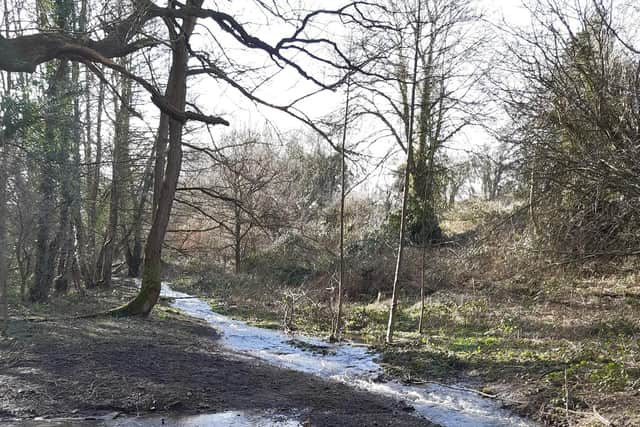Urgent appeal to help Wakefield’s wetlands and wildlife in the face of climate change
and live on Freeview channel 276
Yorkshire Wildlife Trust’s wetland reserves provided a significant lifeline for wildlife this summer as drier and hotter weather led to more wildlife seeking refuge.
Wetlands are the county’s most important reserves for wildlife habitat – providing open water, reed and willow margins, mudbanks, and links to open countryside and woodland.
Advertisement
Hide AdAdvertisement
Hide AdThis year the trust – which is responsible for Stoneycliffe Wood in Netherton, Stocksmoor Common in Sitlington and Rothwell Pastures nature reserves – saw a higher number of unusual wildlife visitors on reserves. This included rare black-winged stilts, a first for northern England.


The trust believes new species like stilts, as well as other visitors including glossy ibises, spoonbill and spotted crake, are likely to be seen more frequently in the coming years as they move north in the search for new feeding and breeding sites. These new species need to be accommodated alongside existing and often rare or at-risk wildlife species.
Wetlands also provide a key habitat for endangered and protected species like great-crested newts, and water voles, which have also declined by 90% in the last 70 years.
However, wetlands are vanishing at an astounding rate: the UK has lost 90% of its wetland habitat through drainage and building works in the last 100 years. The more fragmented our remaining wetlands become, the higher the risk is of it drying out and becoming irrecoverable.
Advertisement
Hide AdAdvertisement
Hide AdLaunching the Wilder Wetlands campaign, Yorkshire Wildlife Trust’s Chief Executive Rachael Bice said: “Wetlands are incredible for biodiversity – and support more creatures than other type of habitat. They are home to some of our much-loved wildlife throughout the year and offer a lifeline to new species moving north in search of cooler conditions. They play an essential role in the ecosystems we rely on but are becoming increasingly vulnerable as climate change alters rainfall patterns.”
Tony Juniper, Chair of Natural England, added: “During the last 100 years, the UK has lost 90% of its wetlands. This has led to the drastic decline of wildlife and rendered the country more vulnerable to the effects of extreme conditions. Draining fens, desiccating peat bogs, drying floodplains and the claiming of coastal marshes has transformed how our land looks and works. Restoring some of those wetlands could deliver huge benefits for both people and wildlife."
Yorkshire Wildlife Trust is the county’s leading wildlife charity and has been protecting and restoring wetland habitats for over 75 years for wildlife, for people to enjoy and to help manage the impacts of a changing climate.
It cares for 25 wetland sites across the county but they are the trust’s most challenging reserves where water levels can be adjusted and specialist equipment and support is needed. Lake margins need to be maintained to provide habitat and prevent reserves from drying out.
It costs more than £100,000 every year to ensure these unique and vital places remain protected and open for people to enjoy.
The trust is asking for support via www.ywt.org.uk/wilder-wetlands
